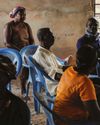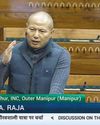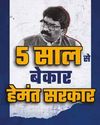
The meeting of G20 foreign ministers in Delhi, on 1 and 2 March, was deemed a success for "Brand India." But it all depends on how we define success. The first three G20 summits, held in the wake of the 2008 financial crisis, saw concrete outcomes: policy and institutional initiatives that stabilised the global banking system. This was no longer the case in 2022, with the escalation of the Russia-Ukraine war. At its Bali summit, the G20 merely issued a joint communique, stating that the participating leaders had agreed to disagree on Ukraine-this was seen as an achievement. This year, with India holding the rotating presidency, the countries could not even agree on a joint statement. Instead, India issued a "Chair's Summary and Outcome Document," with a footnote stating that Russia and China did not agree to two paragraphs.
There was no family photograph of the participants. Many foreign ministers timed their arrival to skip the dinner thrown by their host, S Jaishankar, and went on to issue rather trenchant statements about the war. There was more consonance. in the meeting, on 3 March, of the foreign ministers of the Quad countries: Australia, India, Japan and the United States. This was accompanied by the Raisina Dialogue, an annual public diplomacy event of the ministry of external affairs run in partnership with the private think tank Observer Research Foundation, between 2 and 4 March. There was much pomp and show around the Raisina event, including hugs, photo-ops, speeches, sound bites and, in general, social-media content for the government officials, ministers, analysts and journalists present. What was noise to the ears of objective observers sounded like music to the supporters of the Modi government.
この記事は The Caravan の April 2023 版に掲載されています。
7 日間の Magzter GOLD 無料トライアルを開始して、何千もの厳選されたプレミアム ストーリー、9,000 以上の雑誌や新聞にアクセスしてください。
すでに購読者です ? サインイン
この記事は The Caravan の April 2023 版に掲載されています。
7 日間の Magzter GOLD 無料トライアルを開始して、何千もの厳選されたプレミアム ストーリー、9,000 以上の雑誌や新聞にアクセスしてください。
すでに購読者です? サインイン

HOW TO SEE ART?
BN Goswamy's strategies of seeing

Bitter Crop
Ghana's cacao plantations in crisis

SURVEYORS OF DESTRUCTION
An atmosphere of fear persists in the wake of the Sambhal violence

SITE OF DECEIT
HOW THE ASI FORTIFIES HINDUTVA HISTORY

The Broken Pact
Minority legislators rue the erosion of the Constitution under the Modi government/

Hate by Proxy
How shadow accounts on Meta spread BJP propaganda in Jharkhand

Mob Mentality
How the Modi government fuels a dangerous vigilantism

RIP TIDES
Shahidul Alam’s exploration of Bangladeshi photography and activism

Trickle-down Effect
Nepal–India tensions have advanced from the diplomatic level to the public sphere

Editor's Pick
ON 23 SEPTEMBER 1950, the diplomat Ralph Bunche, seen here addressing the 1965 Selma to Montgomery March, was awarded the Nobel Peace Prize. The first black Nobel laureate, Bunche was awarded the prize for his efforts in ending the 1948 Arab–Israeli War.